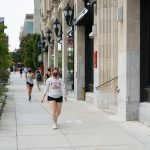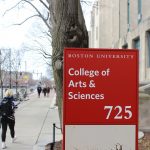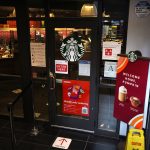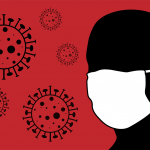City Councilor Michelle Wu said if elected mayor, she would work to break down barriers between communities and city agencies to address Boston’s intersectional issues, such as community health and wealth.
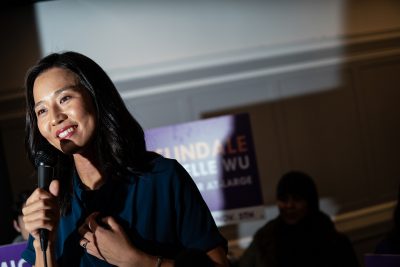
Wu spoke about her commitment during a press conference Saturday with student journalists — including those from Northeastern University and the University of Massachusetts Amherst.
Wu said Boston’s “siloed” communities are the cause of underlying gaps in government support when it comes to housing shortages, climate change and the COVID-19 pandemic.
“Your zip code is often so closely linked to so many factors that determine opportunity and stability,” Wu said. “We also need to make sure that every community feels connected to the outcomes and the success and the opportunity in every other community.”
To do this, Wu said she would focus on streamlining communication between departments in City Hall, and restructuring city services to accurately reflect communities of different races, classes and other identities.
“That means connecting people to each other and providing the supports for families to be connected, for neighborhoods and communities to be connected,” Wu said, “but also that we’re connecting the ways in which our departments work, and our city services are structured, to recognize how intersectional our issues are as well.”
Wu, a first-generation Taiwanese American, said in her work as city councilor, she has attempted to bridge divides between neighborhoods by highlighting conversations about racism with other leaders in Asian and Pacific Islander communities across the country.
“I had come together … to host some national conversations about what our long-term goals should be in tackling and standing shoulder to shoulder with the Black community, with the Latinx community and BIPOC communities in advancing racial justice,” Wu said. “Those conversations need to continue. They’re very much part of every policy decision.”
Wu also said part of her push for city-wide connectedness will come in shifting government support toward historically underserved communities, especially in regard to COVID-19 relief and vaccination.
“There’s a lot of work to do,” Wu said, “in not just standing up for relief, and getting residents resources they need as quickly as possible … but also these underlying issues around closing the racial wealth gap and ensuring equity in all the decisions and actions being taken now.”
Specifically, Wu said the city’s current “first-come-first-serve” system for vaccination, in which vaccination appointments open periodically online for those quick enough to register, is disproportionately serving more privileged communities with the time and resources to wait at the computer.
“Even when there are access points in our most impacted communities, in Black and brown communities in Boston, for example,” Wu said, “the data has shown that that hasn’t meant that our residents are getting vaccines.”
Wu introduced legislation Jan. 27 that she said would combat this inequality in vaccine access by requiring vaccination centers in every zip code in Boston, with hours that would be tailored to each community’s needs.
“These sites would be open in every neighborhood at times of the day that fit families’ lives,” she said, “early morning, evenings, weekends, not just nine to five during a traditional workday.”
Wu also noted that as city councilor, she has been pushing to understand the city’s COVID-19 relief spending on BIPOC communities, which she said have been historically underrepresented in the city’s discretionary spending.
Less than one percent of the $664 million the city spent on contracts for construction, goods and services went to minority- and women-owned businesses, according to the 2019 hearing order issued by Wu and City Councilor Kim Janey.
“In my role as a city councilor, we have been ensuring that the actions and funding of the city won’t just be Band-Aids on the immediate crisis,” Wu said, “but actually aligned with the underlying structural change that we need to see.”
Wu said her ultimate goal is to build a campaign that prioritizes bringing different communities together to effectively combat pressing issues the city of Boston is facing.
“My goal in getting into this race is to connect our communities, and to do that in a way where we are building a multi-cultural, multilingual, multi-generational coalition, of course to be successful in the election,” Wu said. “but more importantly, to then have the momentum to change policies in office.”

